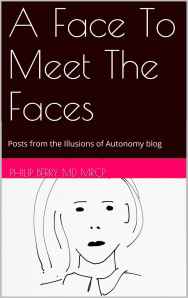I knew George would be the first to ask. He had heard about his diagnosis a week before the vote, and although he had never raised the subject with me (there was no need), I just knew he’d be the one. Metastatic oesophageal cancer. 78 years of age, but ‘biologically’ 65 – busy, reluctantly retired – until disease began to excavate the contours above his strong jaw.
I prepared myself for his questions as I drove to the house. In fact I prepared my defences. Never a great supporter of Falconer’s Bill, I recognised my duty to engage in the process of Assisted Dying if that was what my patients wished. I had already decided that I would not be one to wash my hands of it, to pass it on to more willing colleagues. If it was legal, if it was right – for my patients – I would sign the papers. But not today…I didn’t want to commit to such a process today.
He met me at the door. The ostensible reason for my visit was to assess him for chest pain that had come on overnight. The tumour had been stented ten days earlier, and I had told him to expect some discomfort. He was feeling better already, he quickly informed me. I set myself for a quick turnaround but he ushered me to the visitors’ chair. Then he got to the point.
“Paul,” (he had always used my first name) “I want to ask you something.”
“Go ahead.” And I knew.
“This assisted dying law. Will you promise to support me, if I choose it?”
“Well George, it’s only just been voted through, there’s a long way to go. I haven’t looked into all the details yet…”
“It sounds simple enough to me, you must know the criteria. Terminal diagnosis – yes. Less than a year – yes. Settled opinion – absolutely, I was settled on it even before I got cancer. And two doctors.”
“You seem to have decided very quickly George. You’re alright at the moment, aren’t you? Swallowing better. A bit of liquid morphine.”
“It’s knowing Paul. Knowing before it gets hold of me. I don’t want to start all this when I can barely get about, or barely talk for that matter. It’s a high tumour, it might even touch my windpipe, the chap at the hospital said. That’s if the liver doesn’t get me first.”
“Perhaps I should record your opinion, put it in the notes, and wait…see how it goes.”
“It will not go well Paul. It is naïve to expect a good death.”
“Why? The hospice have already been in touch. You’re visiting next week. They’re great there. I go myself every other week to see patients.”
“I know. But I want to die before my symptoms are bad enough to require a hospice. They are reactive.”
“I’m not sure they would agree.”
“No disrespect, but they are. When I get bad they will put me on the list, when I feel awful they will increase the doses. By dying at the time of my choosing I avoid a trial of symptoms. I am dying already, look at me. But now I can control the timing…with your help.”
“Control. Isn’t that the point George? You don’t want to lose control.”
“Precisely. So what?”
“Is that a strong enough reason to ask me help you die?”
“Ah, Paul! I do worry about your feelings in this, but not quite enough to stop me asking. You’ll get over it.”
“But I need to be sure that I am assisting your death for the right reasons George. These…existential motives, you might call them, I’m not sure they are what the Lords had in mind when they passed the Bill.”
“I don’t think they were trying to cater for specific symptoms Paul. My distress is loss of control and autonomy, it is seeing those around me grieve while I still live, it is the determined stoicism in Lucy’s eyes that I don’t want to witness for longer than I have to.”
“You worry about Lucy?”
“Of course! It’s a huge burden on her. Huge. Physically, mentally.”
“That is a problem for me George. I cannot support assisting your death if it is primarily to relieve the suffering of another. It’s too…unclear, too…complicated.”
“We are complex Paul, the dying. We are at our most complex before the actual dying has commenced, but after we have been made aware that it is coming. There is no great clarity in my mind, let me tell you, except over this one point.”
“But George, it’s got to be in the context of unendurable pain and suffering. If you remain comfortable I, we, will not find a second doctor who is willing to sign the papers…”
“Aren’t pain and suffering subjective? It’s for me to say when they are or aren’t so bad. Not for you to tell me. And part of my pain is my family’s pain, and the thought of their increasing pain as I am increasingly diminished. You can’t isolate a dying man’s symptoms from their family. Lucy will be with me, and she has told me it is also what she wants.”
“I’m sorry George. Perhaps it’s too soon for me, as a doctor.”
“I understand that. But you will come back to talk about it again? Won’t you? You’re not turning away?”
“Of course I’m not. Let me think about it.”
oOo
New collection, click to explore



Leave a comment